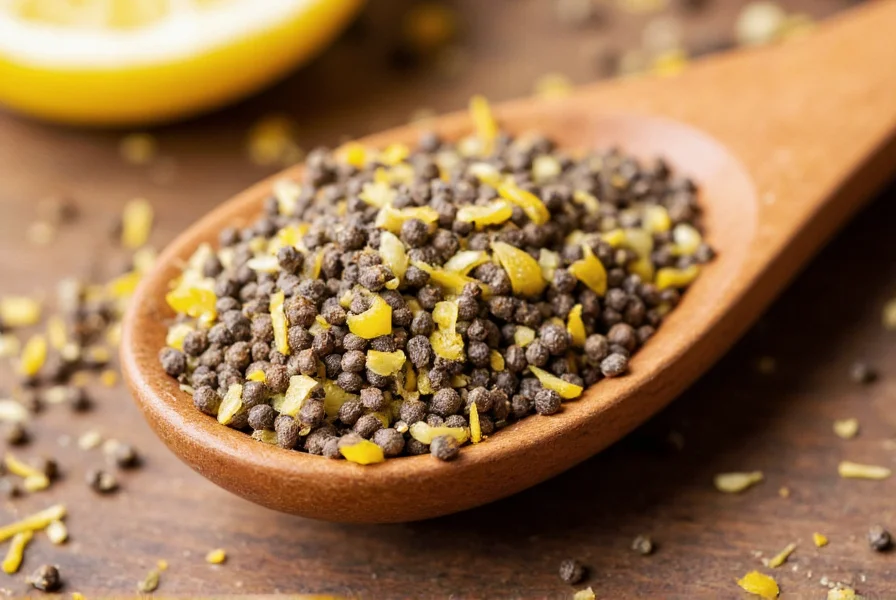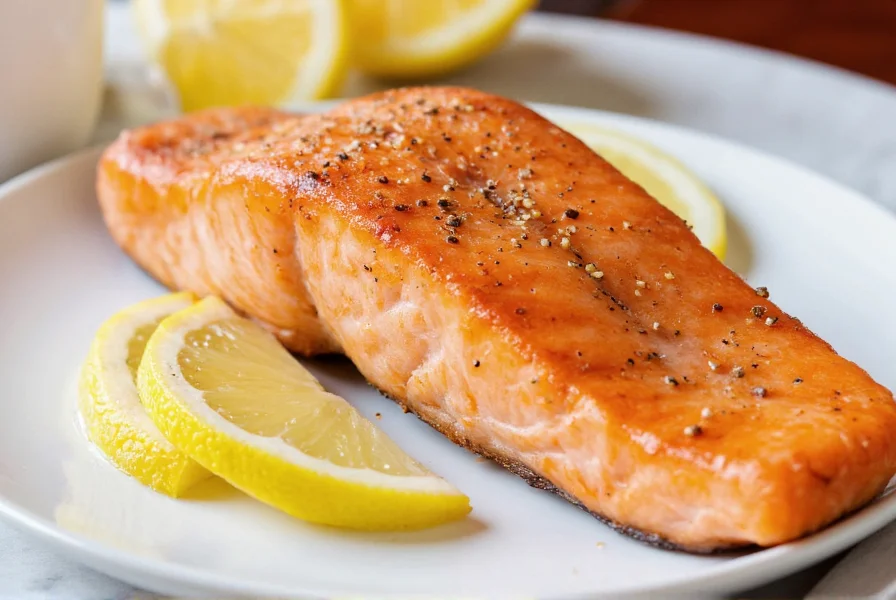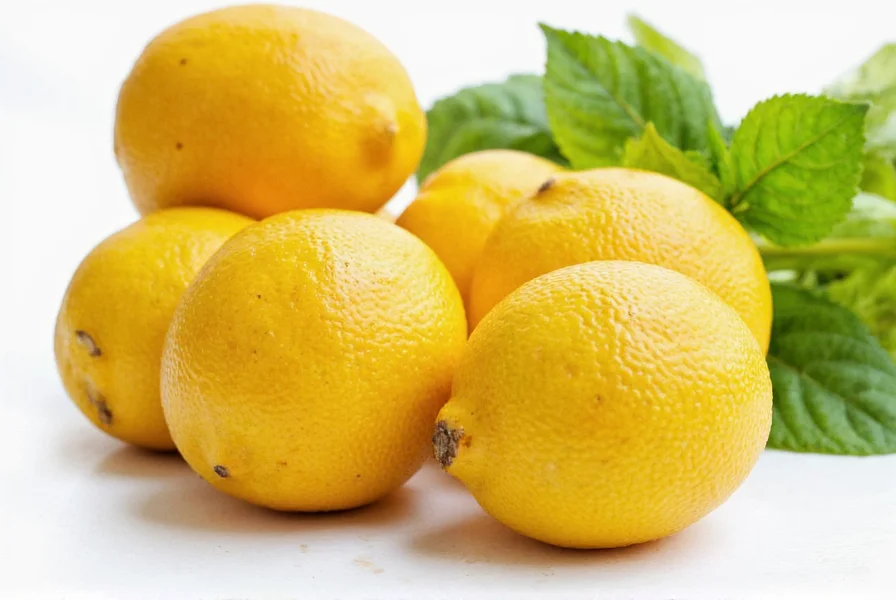Lemon pepper seasoning has become a kitchen essential for home cooks seeking to elevate dishes with minimal effort. Unlike single-ingredient spices, this blend combines the sharp brightness of lemon with the gentle heat of black pepper to create a balanced flavor profile that works across numerous culinary applications. Understanding its composition and proper usage unlocks its full potential in everyday cooking.
What Exactly Is Lemon Pepper?
Despite its name suggesting a single spice, lemon pepper is always a seasoning blend. The core components include:
- Dried lemon zest (providing citrus flavor without moisture)
- Coarsely ground black peppercorns (delivering aromatic heat)
- Fine sea salt (enhancing flavor and acting as a preservative)
Many commercial varieties add complementary ingredients like garlic powder, onion powder, or dried herbs such as parsley or dill. High-quality blends use real lemon oil or zest rather than artificial flavorings, creating a more authentic citrus note. When shopping for lemon pepper, check the ingredient list to avoid versions heavy on fillers or artificial additives.
| Component | Purpose | Quality Indicator |
|---|---|---|
| Dried lemon zest | Provides authentic citrus flavor | Look for "lemon oil" or "lemon zest" rather than "natural flavors" |
| Black pepper | Delivers warmth and complexity | Coarsely ground for better flavor release |
| Salt | Enhances overall flavor profile | Sea salt preferred over table salt |
Understanding Lemon Pepper's Flavor Dynamics
The magic of lemon pepper lies in how its components interact during cooking. The dried lemon zest releases citrus oils when exposed to heat or moisture, while the coarse pepper provides bursts of flavor rather than uniform heat. Unlike using fresh lemon juice, which can curdle in dairy or become bitter when cooked, the dried zest in lemon pepper maintains stability through various cooking methods.
Chefs appreciate lemon pepper for its ability to add complexity without overwhelming other ingredients. The citrus element cuts through richness in fatty foods like salmon or chicken thighs, while the pepper provides just enough heat to stimulate the palate. This balance makes it particularly valuable for creating restaurant-quality dishes at home with minimal technique required.
Optimal Culinary Applications for Lemon Pepper
Certain cooking techniques maximize lemon pepper's potential. For best results:
- Seafood preparation: Sprinkle generously on fish fillets before baking or grilling. The citrus complements ocean flavors while the pepper adds dimension.
- Poultry seasoning: Rub under chicken skin or into turkey cavities before roasting for infused flavor throughout.
- Vegetable enhancement: Toss roasted vegetables with lemon pepper during the last five minutes of cooking to preserve volatile citrus oils.
- Salad dressing base: Mix with olive oil and a touch of vinegar for an instant vinaigrette.
Professional cooks often add lemon pepper at multiple stages: some during cooking for infused flavor, and a final sprinkle after cooking to provide bright top notes. This two-stage approach creates layered flavor that single applications cannot achieve.

Creating Superior Homemade Lemon Pepper
While quality commercial blends exist, making your own lemon pepper ensures freshness and customization. The basic ratio for a versatile blend:
- 2 tablespoons dried lemon zest (or 1 tablespoon lemon oil)
- 2 tablespoons coarsely ground black pepper
- 1 tablespoon fine sea salt
- 1 teaspoon garlic powder (optional)
- 1 teaspoon dried parsley (optional)
To prepare, combine all ingredients in a small bowl, breaking up any clumps of zest. Store in an airtight container away from light and heat. Properly stored, homemade lemon pepper maintains peak flavor for 2-3 months, compared to 6-12 months for commercial blends with preservatives.
For specialized variations, consider adding:
- Mediterranean style: Add dried oregano and a pinch of red pepper flakes
- Herbaceous version: Incorporate dried dill and chives
- Spicy citrus blend: Include orange zest and cayenne pepper
Avoiding Common Lemon Pepper Mistakes
Even experienced cooks sometimes misuse this versatile seasoning. Watch for these pitfalls:
- Adding too early in cooking: The delicate citrus oils evaporate quickly. Add during the last 5-10 minutes of cooking for maximum impact.
- Over-salting dishes: Many commercial blends contain significant salt. Taste before adding additional salt to your recipe.
- Misunderstanding potency: Homemade versions without fillers are more concentrated. Start with half the amount you'd use of commercial blends.
- Improper storage: Exposure to moisture or light degrades quality rapidly. Keep in a cool, dark place in an airtight container.
Creative Uses Beyond Basic Seasoning
Expand your culinary repertoire with these innovative applications:
- Compound butter: Mix softened butter with lemon pepper for instant flavored butter perfect for finishing steaks or melting over vegetables.
- Marinade base: Combine with olive oil and a touch of honey for a quick protein marinade that works in 30 minutes.
- Bread seasoning: Sprinkle on focaccia or breadsticks before baking for a citrus-herb flavor profile.
- Popcorn seasoning: Toss with melted butter on freshly popped corn for a sophisticated snack.

Substitutes and Complementary Flavors
When lemon pepper isn't available, these alternatives provide similar flavor profiles:
- DIY quick substitute: Mix equal parts lemon zest and freshly cracked black pepper with a pinch of salt
- Citrus-pepper alternative: Orange pepper works well for sweeter applications
- For salt-sensitive diets: Create a salt-free version using just lemon zest and pepper
Lemon pepper pairs exceptionally well with complementary flavors including:
- Garlic and onion (enhances savory notes)
- Dill and parsley (creates herbaceous complexity)
- Olive oil (carries and distributes flavors)
- Butter (mellows the pepper while enhancing citrus)











 浙公网安备
33010002000092号
浙公网安备
33010002000092号 浙B2-20120091-4
浙B2-20120091-4